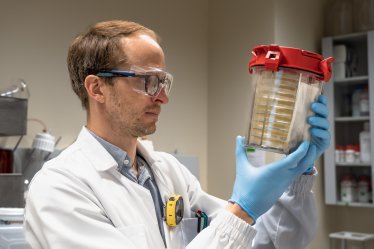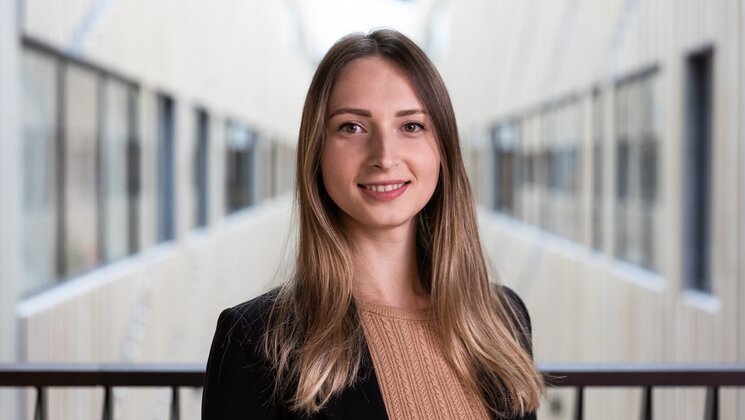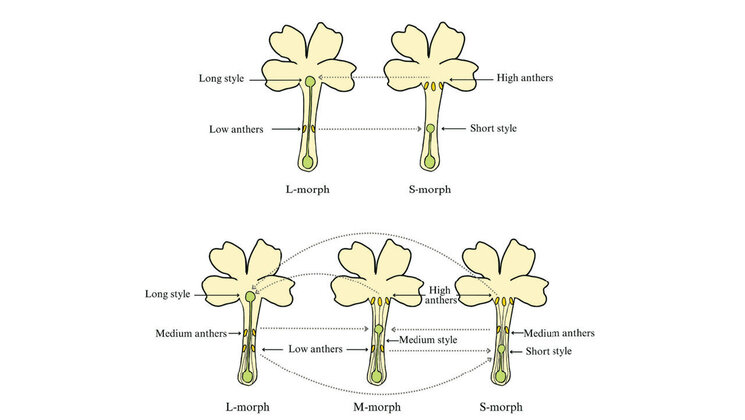-
Faculty of Arts and HumanitiesDean's Office, Faculty of Arts and HumanitiesJakobi 2, r 116-121 51005 Tartu linn, Tartu linn, Tartumaa EST0Institute of History and ArchaeologyJakobi 2 51005 Tartu linn, Tartu linn, Tartumaa EST0Institute of Estonian and General LinguisticsJakobi 2, IV korrus 51005 Tartu linn, Tartu linn, Tartumaa EST0Institute of Philosophy and SemioticsJakobi 2, III korrus, ruumid 302-337 51005 Tartu linn, Tartu linn, Tartumaa EST0Institute of Cultural ResearchÜlikooli 16 51003 Tartu linn, Tartu linn, Tartumaa EST0Institute of Foreign Languages and CulturesLossi 3 51003 Tartu linn, Tartu linn, Tartumaa EST0School of Theology and Religious StudiesÜlikooli 18 50090 Tartu linn, Tartu linn, Tartumaa EST0Viljandi Culture AcademyPosti 1 71004 Viljandi linn, Viljandimaa EST0Professors emeriti, Faculty of Arts and Humanities0Associate Professors emeriti, Faculty of Arts and Humanities0Faculty of Social SciencesDean's Office, Faculty of Social SciencesLossi 36 51003 Tartu linn, Tartu linn, Tartumaa EST0Institute of EducationJakobi 5 51005 Tartu linn, Tartu linn, Tartumaa EST0Johan Skytte Institute of Political StudiesLossi 36, ruum 301 51003 Tartu linn, Tartu linn, Tartumaa EST0School of Economics and Business AdministrationNarva mnt 18 51009 Tartu linn, Tartu linn, Tartumaa EST0Institute of PsychologyNäituse 2 50409 Tartu linn, Tartu linn, Tartumaa EST0School of LawNäituse 20 - 324 50409 Tartu linn, Tartu linn, Tartumaa EST0Institute of Social StudiesLossi 36 51003 Tartu linn, Tartu linn, Tartumaa EST0Narva CollegeRaekoja plats 2 20307 Narva linn, Ida-Virumaa EST0Pärnu CollegeRingi 35 80012 Pärnu linn, Pärnu linn, Pärnumaa EST0Professors emeriti, Faculty of Social Sciences0Associate Professors emeriti, Faculty of Social Sciences0Faculty of MedicineDean's Office, Faculty of MedicineRavila 19 50411 Tartu linn, Tartu linn, Tartumaa ESTInstitute of Biomedicine and Translational MedicineBiomeedikum, Ravila 19 50411 Tartu linn, Tartu linn, Tartumaa ESTInstitute of PharmacyNooruse 1 50411 Tartu linn, Tartu linn, Tartumaa ESTInstitute of DentistryL. Puusepa 1a 50406 Tartu linn, Tartu linn, Tartumaa ESTInstitute of Clinical MedicineL. Puusepa 8 50406 Tartu linn, Tartu linn, Tartumaa ESTInstitute of Family Medicine and Public HealthRavila 19 50411 Tartu linn, Tartu linn, Tartumaa ESTInstitute of Sport Sciences and PhysiotherapyUjula 4 51008 Tartu linn, Tartu linn, Tartumaa ESTProfessors emeriti, Faculty of Medicine0Associate Professors emeriti, Faculty of Medicine0Faculty of Science and TechnologyDean's Office, Faculty of Science and TechnologyVanemuise 46 - 208 51003 Tartu linn, Tartu linn, Tartumaa ESTInstitute of Computer ScienceNarva mnt 18 51009 Tartu linn, Tartu linn, Tartumaa ESTInstitute of GenomicsRiia 23b/2 51010 Tartu linn, Tartu linn, Tartumaa ESTEstonian Marine Institute0Institute of PhysicsInstitute of ChemistryRavila 14a 50411 Tartu linn, Tartu linn, Tartumaa EST0Institute of Mathematics and StatisticsNarva mnt 18 51009 Tartu linn, Tartu linn, Tartumaa EST0Institute of Molecular and Cell BiologyRiia 23, 23b - 134 51010 Tartu linn, Tartu linn, Tartumaa ESTTartu ObservatoryObservatooriumi 1 61602 Tõravere alevik, Nõo vald, Tartumaa EST0Institute of TechnologyNooruse 1 50411 Tartu linn, Tartu linn, Tartumaa ESTInstitute of Ecology and Earth SciencesJ. Liivi tn 2 50409 Tartu linn, Tartu linn, Tartumaa ESTProfessors emeriti, Faculty of Science and Technology0Associate Professors emeriti, Faculty of Science and Technology0Institute of BioengineeringArea of Academic SecretaryHuman Resources OfficeUppsala 6, Lossi 36 51003 Tartu linn, Tartu linn, Tartumaa EST0Area of Head of FinanceFinance Office0Area of Director of AdministrationInformation Technology Office0Administrative OfficeÜlikooli 17 (III korrus) 51005 Tartu linn, Tartu linn, Tartumaa EST0Estates Office0Marketing and Communication OfficeÜlikooli 18, ruumid 102, 104, 209, 210 50090 Tartu linn, Tartu linn, Tartumaa EST0Area of Vice Rector for DevelopmentCentre for Entrepreneurship and InnovationNarva mnt 18 51009 Tartu linn, Tartu linn, Tartumaa EST0University of Tartu Natural History Museum and Botanical GardenVanemuise 46 51003 Tartu linn, Tartu linn, Tartumaa EST0International Cooperation and Protocol Office0University of Tartu MuseumLossi 25 51003 Tartu linn, Tartu linn, Tartumaa EST0Area of RectorRector's Strategy OfficeInternal Audit OfficeArea of Vice Rector for Academic AffairsOffice of Academic Affairs0University of Tartu Youth AcademyUppsala 10 51003 Tartu linn, Tartu linn, Tartumaa EST0Student Union OfficeÜlikooli 18b 51005 Tartu linn, Tartu linn, Tartumaa EST0Centre for Learning and TeachingArea of Vice Rector for ResearchUniversity of Tartu LibraryW. Struve 1 50091 Tartu linn, Tartu linn, Tartumaa EST0Grant Office
European research grant facilitates production of valuable fuels and chemicals using microbial cell factories

Kaspar Valgepea, Associate Professor of Gas Fermentation Technologies at the University of Tartu, will advance understanding of gas-consuming bacteria, supported by European Research Council grant funding. The project will pioneer a novel method for creating a large number of genetically engineered strains and compile a knowledge base that will accelerate engineering of cell factories and research in the field of biotechnology, as well as knowledge transfer supporting a circular economy.
Acetogen bacteria are microorganisms capable of consuming both exhaust gases and gasified organic waste, including the most common household waste. While bacterial strains present in nature can produce a handful of useful compounds, bioengineering their metabolism would allow gas-fermenting acetogens to produce the necessary compounds for fuels and chemicals more efficiently and in a notably larger range. This process is called gas fermentation. It is a technology that is already in industrial use in the world, but so far mainly for the production of ethanol.
The unsolved mystery of the bacterium
One of the reasons for the current restricted use of acetogens is the lack of knowledge about which genes exactly influence which processes. As these bacteria live in environments without oxygen and consume toxic and explosive gases, studying them is challenging. So far, genetically modified strains have essentially been handmade one-by-one that is very time-consuming. Therefore, it is still unclear what exactly are the functions of the majority of the roughly 4,000 genes in the studied acetogen bacterium (Clostridium autoethanogenum).
For the same reason, there is also a lack of a comprehensive dataset describing how modifications in different genes affect bacterial phenotypes at systems-level. According to Valgepea, such datasets have only been compiled for a few of the most studied microorganisms, such as the bacterium Escherichia coli or baker's yeast. Even for them, around 160 strains are characterised in the datasets.
Impact on the future of biotechnology
The novelty of Valgepea's project is that, within five years, it will create nearly 750 modified bacterial strains and consolidate the collected data as well as existing similar information about acetogens in a public knowledgebase (A-BASE). As the method for creating genetically modified strains would also be applicable to other microorganisms, the expected impact of the project is significant for the fields of microbiology, synthetic biology, and biotechnology, both for research and industrial applications.

The distinctiveness of the method being developed by Valgepea is that in addition to creating a large-scale library of strains, it also aims to find a way how to grow and study the strains individually. In selecting the genes for modification, the researchers will focus on three aspects, the exploration of which has had a great impact on other bacterial strains. Thus, they will be exploring genes essential for growth, factors that influence DNA transcription, and proteome "dark matter" that play an important role in engineering of bacterial metabolism. Applying data mining and machine learning on the data collected while focusing on the three aspects will enable to find the best target mutations faster than before, so that acetogen cell factories could more efficiently produce a greater number of compounds, which production would otherwise have a significant environmental footprint in the traditional chemical industry.
"The key issue in reducing the environmental impact of the global economy is how to move from carbon mining to carbon recycling. According to the McKinsey Institute, nearly 60% of the physical inputs to the global economy can be produced via biological systems. My project has a significant impact on the development of one technology contributing to the latter – gas fermentation“, explained Valgepea, who at the Institute of Bioengineering, University of Tartu is the leader of one of the few laboratories in the world that could execute such a project. The amount of the Consolidator Grant from the European Research Council is slightly above two million euros. The project lasts five years.
Read more similar news






